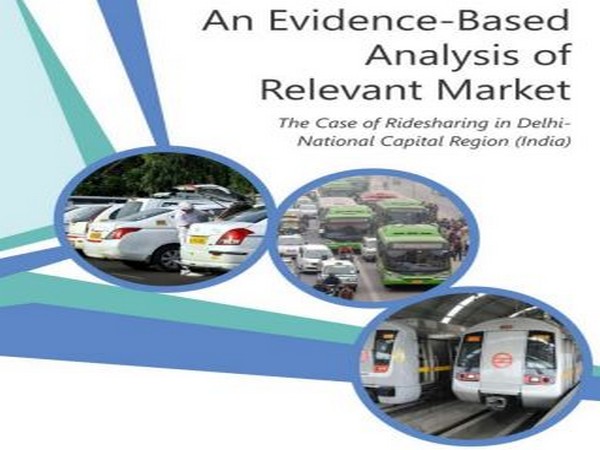App-based cabs preferred choice for commuters as personal vehicles take back seat: CUTS
App-based cab booking service offered by companies like Ola and Uber is the preferred choice for commuters in Delhi-NCR region as 35 per cent of people commuting has cab booking apps as the most frequently used mode of private transport, according to a survey of 1,377 commuters in Delhi NCR by think tank CUTS International.

- Country:
- India
App-based cab booking service offered by companies like Ola and Uber is the preferred choice for commuters in Delhi-NCR region as 35 per cent of people commuting has cab booking apps as the most frequently used mode of private transport, according to a survey of 1,377 commuters in Delhi NCR by think tank CUTS International. This was followed by traditional auto-rickshaws being preferred by 23 per cent of the respondents while 21 per cent still had personal vehicles including four and two-wheelers as the preferred route to commute.
"Non-app based taxis which are usually hailed through calling the local taxi stand or contacting the driver directly over the phone or hailed from a taxi stand or hub also seem to be a preferred choice, but only to a limited extent," showed the survey by Consumer Unity and Trust Society (CUTS) International. In terms of public modes of transport, the Metro dominated commuters' preference with 88 per cent share followed by 8 per cent choosing public buses.
The on-ground survey of 1,377 riders and 660 drivers using online app-based ride-sharing platforms (OAPs) services in Delhi NCR was conducted to understand their preferences and switching decisions. Price as well as non-price factors influencing consumer preferences and decisions were gauged. The data sets were analysed by applying tailored versions of small but significant non-transitory increase in price (SSNIP) and small but significant non-transitory decrease in quality (SSNDQ) tests in a complementary manner to ensure robust findings.
The survey shows that non-price factors induced by cross-group network effects generated by platforms are increasingly becoming prominent along with price factors in decision making of consumers with respect to OAP services. Preferences of riders are multifarious and influenced by factors like their income, gender, geography, purpose, duration and time of the trip. Consequently, riders are unlikely to view OAP services uniquely.
While considering alternate modes, riders are likely to compare specific features of OAPs from which they derive most value with similar features of other service providers, online as well as offline. This leaves scope for innovation and entry in the market substantially open. In case of riders, CUTS International envisions the relevant product market as market for transportation services for riders in which the different probable substitutes of OAPs in Delhi-NCR are OAP service providers, non-app auto-rickshaws, personal vehicles, non-app taxis, the Metro and radio taxis (in the decreasing degree of substitution).
The survey said key alternates considered by taxi drivers (linking with other OAPs) are likely to differ from those considered by auto drivers (plying as non-app autos). In case of drivers, the relevant product market is market for facilitation services to drivers for accessing riders.
(ANI)
(This story has not been edited by Devdiscourse staff and is auto-generated from a syndicated feed.)
ALSO READ
"Committed to improving connectivity across country" says PM Modi after cabinet approves Rithala-Kundli corridor under 4th phase of Delhi Metro
Delhi: Two shooters, wanted in Mundka murder case, arrested after brief exchange of fire
People take refuge in night shelters as cold wave grips Delhi
Bizman shot dead during morning walk in Delhi
AQI in Delhi falls to 'poor' category










